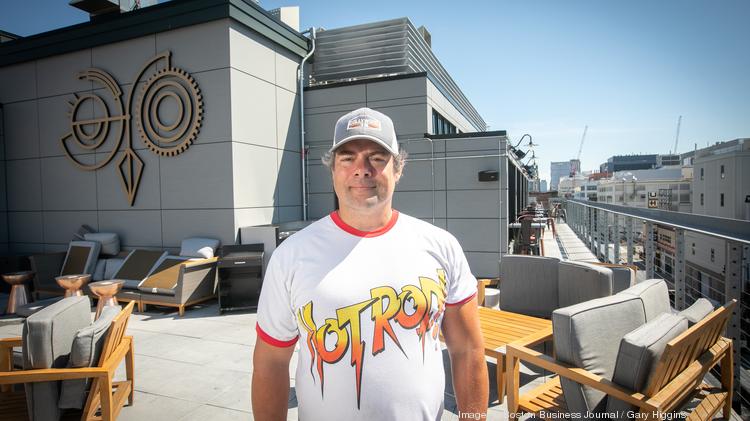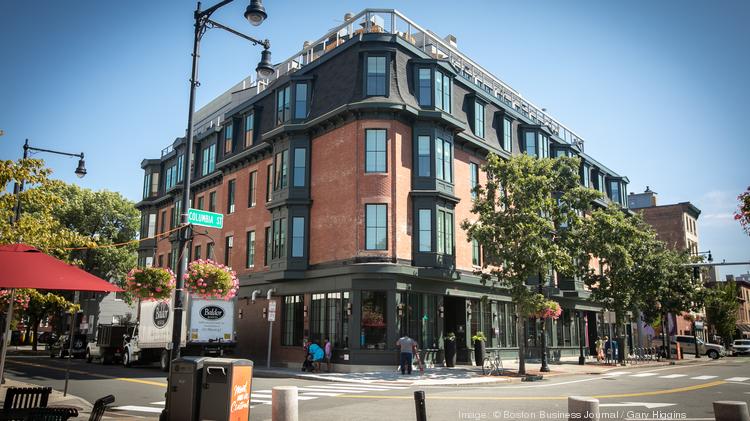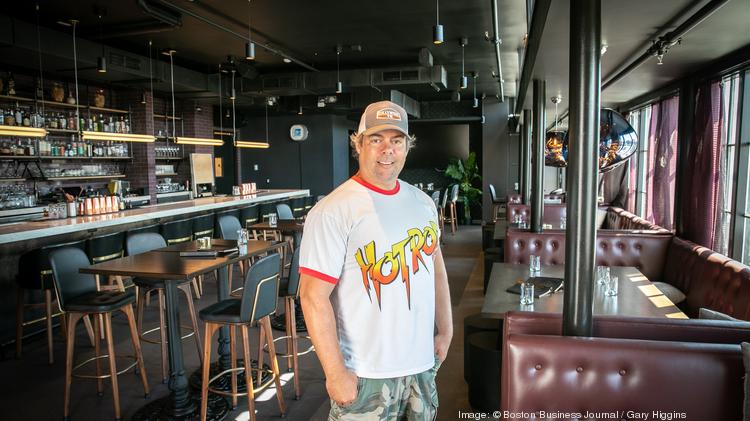Project: A brownstone-turned-boutique-hotel in Cambridge’s Central Square, with a ground-level restaurant and a rooftop bar.
Opening: 2020
Development costs: $24 million
What’s electric? All 67 hotel rooms have their own heat pump. Some restaurant kitchen equipment.
What’s gas? The hot water system, restaurant stoves and the building’s emergency backup system.
Patrick Barrett, who does his own residential and commercial real estate development work, wanted his hotel to be all-electric or close to it. The problem, as he tells it, was his electric utility.
Barrett said he was told by Eversource that to go all-electric, he would have to put a transformer as well as switchgear equipment to help prevent surges on the property. That would have required a dedicated 20-by-20-foot room with a 15-foot height clearance, Barrett says, meaning he’d have to get rid of the hotel’s ground-floor retail and outdoor courtyard. He estimates the equipment would have cost him roughly $2 million to buy and install.
“Financially it wasn’t the biggest issue,” he said. “It was the lack of space to put all the stuff.”
907 Main Hotel in Cambridge’s Central Square.
Barrett disagreed with Eversource that he needed the equipment to safely handle the building’s electric load.
“We spent a year-and-a-half talking to them before we finally threw up our hands,” he said.
It wasn’t the only way in which Barrett felt stymied in his drive to make 907 Main as sustainable as possible. He looked into putting solar panels on the roof, but the grid in Central Square only has a one-way feed, so he would not be able to feed back power into the system, he said.
Still, the hotel uses heat pumps for its heating and cooling needs, and Barrett took advantage of other environmentally friendly features, including LED lighting and what he describes as “net zero” insulation. The site’s electrical usage is about half of what it was back when it was a 12-unit residential building, while its gas usage is “miles lower,” according to Barrett.
He recently started speaking with Cambridge officials about building another hotel in the city, this one new construction at the current site of the Middle East nightclub in Central Square. The new building would also include performance stages and a rooftop restaurant, according to preliminary plans. Barrett is looking to make the hotel all-electric, with the possible exception of a gas line to the restaurant kitchen.
With few exceptions, “I can’t find a chef on planet Earth where they’re interested in not having an open flame,” he said. “Talk to chefs, and they’ll say some things can be done with induction, some things can’t.”
He has found induction machinery to be significantly more expensive than gas-fired kitchen equipment, he said, and trickier to fix, given that he would need to call a technician rather than a plumber. But in early discussions, some city officials have talked to him about an all-electric kitchen, even though no gas ban is yet in place. City councilors are also weighing a proposal to require owners of larger buildings to reach “net zero” emissions by the year 2035 — which would likely necessitate all of them to go all-electric — but it has not yet become law.
“I think perfection has become a bit of the enemy of progress in some of these discussions,” Barrett said.
Patrick Barrett in the kitchen and bar area at 907 Main Hotel in Cambridge’s Central Square.




